Tanzanian Cargo Ship Capsizes In Iranian Port
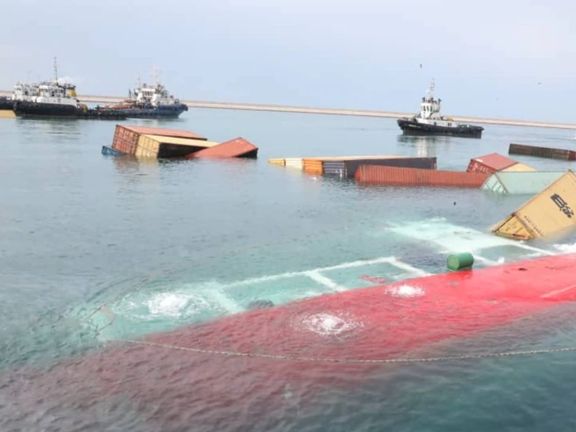
Iranian state media say a Tanzanian-registered cargo ship has sunk Tuesday at a dock in the southern Iranian port of Assaluyeh on the Persian Gulf.

Iranian state media say a Tanzanian-registered cargo ship has sunk Tuesday at a dock in the southern Iranian port of Assaluyeh on the Persian Gulf.
IRNA news agency reported that the vessel named Anil overturned because containers being placed on it were configured incorrectly.
Iranian Ports and Maritime Organization says rescue forces were immediately dispatched and all 12 crew members of the vessel were rescued.
No further details have been published about the cargo of the Tanzanian-flagged ship.
Iran and Tanzania have less than $100 million in trade per year. Tanzania Imports from Iran totaled $11.51 million in 2021, according to the United Nations COMTRADE database on international trade.
Iranian officials claim the Islamic Republic has exported 2.2 million tons of non-oil products valued at one billion dollars to African countries from March 21, 2022 up to December 31.
Iran’s imports and exports have slowed down due to banking and oil sanctions imposed by the United States after President Donald Trump in 2018 withdraw from the 2015 nuclear deal between Tehran and world powers.
The Biden Administration appears to be more resolute in enforcing US sanctions, with designating individuals and third-party companies that are involved in one way or another in doing business with sanctioned Iranian entities.
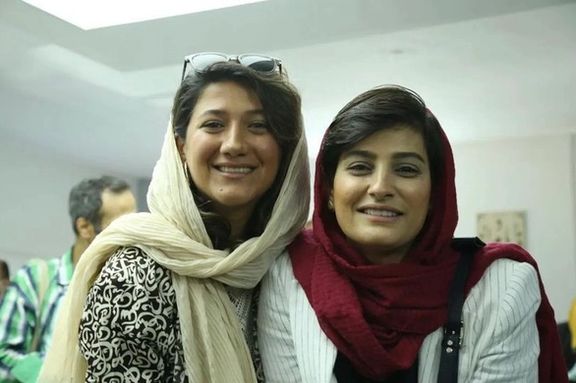
Iranian Journalists Association has published a new list of two dozen journalists who are still in detention after widespread arrets during antigovernment protests.
The Committee to Follow up on Situation of Arrested Journalists has prepared a list of these people saying at least 24 journalists are still under arrest.
Based on official and unofficial reports, the association says almost 100 journalists have been arrested or summoned since the beginning of anti-regime protests in mid-September, and some of them released on bail.
Elaheh Mohammadi and Niloufar Hamedi, who published the news about the death of Mahsa Amini in police custody for the first time, are among the ones behind bars.
The committee also noted that it will soon publish a separate list of the names of journalists who have been temporarily released on bail.
Meanwhile, the reformist Ham-Mihan daily in a report on Wednesday said large bails are set for the temporary release of the detained protesters.
According to this report, the bail set for journalists was usually between 30 to 40 thousand US dollars, an astronomical sum for most Iranians.
In the past weeks, a number of detained journalists received heavy jail sentences, including Ehsan Pirbornash, who was sentenced to 18 years in prison.
In its 43-year history, the Islamic Republic has arrested hundreds of journalists, and many have been killed inside and outside prisons. The regime keeps tight control over all print media and has a monopoly over radio and television. It also tightly censors Internet content by blocking thousands of websites and major social media platforms.
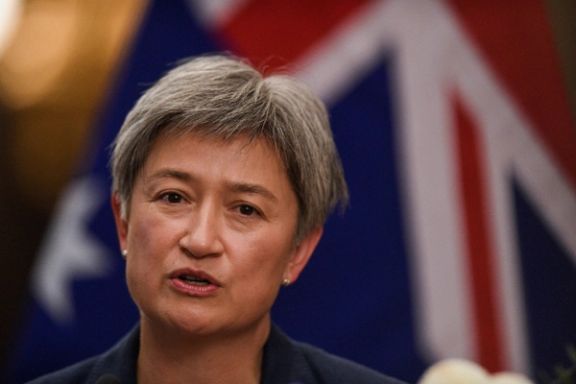
Australia has expressed deep concern over Iran’s "interference" in the country's affairs, including "in person and online harassment" of Australian citizens.
A spokeswoman for Foreign Minister Penny Wong told the ABC, “The Australian government is deeply concerned by reports of foreign interference, including the harassment and intimidation of Australians online and in-person".
"We have raised our concerns about foreign interference directly to the Iranian regime in no uncertain terms," said the spokesperson who did not want to reveal her identity.
"Australia will continue to work domestically to keep Australians safe from foreign interference and with our like-minded partners to apply pressure on the Iranian regime over its egregious human rights abuses."
She also noted that Australia has been integral to building pressure internationally and was at the forefront of efforts to remove Iran from the Commission for the Status of Women.
Based on a report tabled in parliament, ABC reported that Iranian Revolutionary Guard-affiliated elements have launched targeted cyber-attacks on Australian organizations, with the aim of using the data obtained for extortion.
“The IRGC-affiliated actors are actively targeting a broad range of entities, including entities across multiple US critical infrastructure sectors as well as Australian, Canadian, and United Kingdom organizations,” the report says.
The report suggests IRGC agents often operate under the auspices of Najee Technology Hooshmand Fater LLC, based in Karaj, Iran, and Afkar System Yazd Company, based in Yazd, Iran.
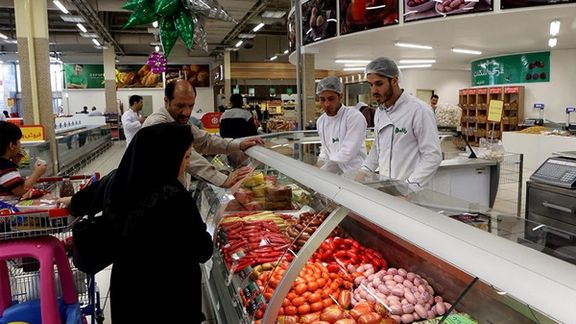
Despite haphazard state measures such as injecting dollars into the currency market and selling gold on the stock market, inflation is soaring and the rial maintains a downward trend.
The point-to-point inflation rate reported by the Statistical Center of Iran (SCI) for the past Iranian month, which ended on January 20, has surpassed 50 percent, with food inflation hitting an average of over 70 percent.
The SCI put overall inflation at 51 percent, taking into account 12 groups of goods and services. The highest jump was reported in the hotel and restaurant sector with 78.5 percent, followed by food.
The SCI announced food inflation to be over 70 percent, considering the rise in prices of bread and cereals, red meat, dairy products, fruits, etc. The inflation for edible oils and fats was about 248 percent in comparison with the corresponding period of the previous year. Most of the rise was due to the government’s elimination of subsidies for essential goods – factored in the supply chain in the form of cheap dollars for importers. The lowest inflation in the group of food items was reported for tea, coffee, cocoa, soft drinks and fruit juice with an average of 32 percent.
Medicines and healthcare services recorded a 54-percent increase followed by price increases for transportation and clothing with 46.9 and 45.7, respectively.
The figures indicated a slower rise in prices as the inflation of food items even reached 100 percent in some provinces in previous months. Most price increases happened since early May when the government scrapped a food import subsidy to save around $15 billion annually. The move immediately triggered a massive rise in prices for basic food staples, such as bread, dairy products, cooking oil and meat. Although the government has repeatedly said its oil exports are steadily increasing despite sanctions by the United States, economic conditions keep deteriorating, with Iran's battered currency, the rial, hitting historic lows in recent months.
The government has taken a slew of measures in the past months to curb inflation and control the freefall of the rial. It replaced the governor of the central bank about a month ago, and has kept injecting dollars into the market to balance out demand. On Tuesday, it started offering gold coins on the stock market and also launched a system for nominally fixed exchange rates for its nosediving currency, which has lost at least 50 percent of its value since mid-2021.
On Tuesday, one dollar was exchanged for over 440,000 rials to the US dollar, bouncing back from a low of 450,000 in the past couple of days.
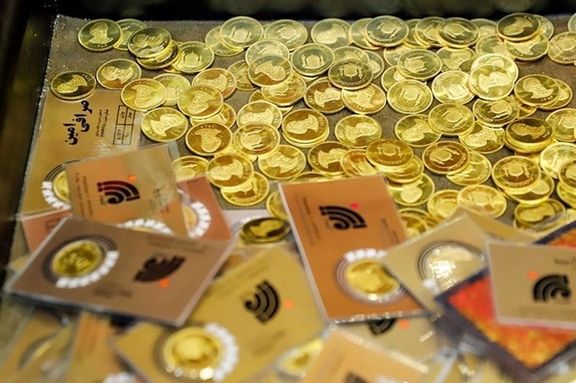
The government started selling gold on the stock market in the form of securities. As per the plan, people can buy up to five gold coins weighing about two grams each (called quarter gold coins in Iran as a full gold coin is about eight grams) at current prices, but they only receive a document for their purchase and will have to wait until the government announces the date when they can receive their coins. People tend to rush for such governmental schemes because by the time they get their coins, the price will be higher as the rial falls, and they can gain a little profit. This way the government gets large amounts of money and only gives people some certificates for their purchase. The government plans to sell 450,000 of these two-gram coins on the stock market in the next 10 days. This will amount to nearly a ton of gold.
Moreover, this week, the government pumped $305 million into the currency market over two days, after rial fell to a historic low of 450,000 against the US dollar.
Earlier in the week, the parliament approved the outlines of the budget bill for the next Iranian year – starting March 21 -- without considering its unrealistic assumptions. The deficit in the current budget that the government admits is about 4,760 trillion rials – more than ten billion dollars. But the real deficit will be perhaps twice as much, with rosy estimates of oil sales and staggering tax collection.
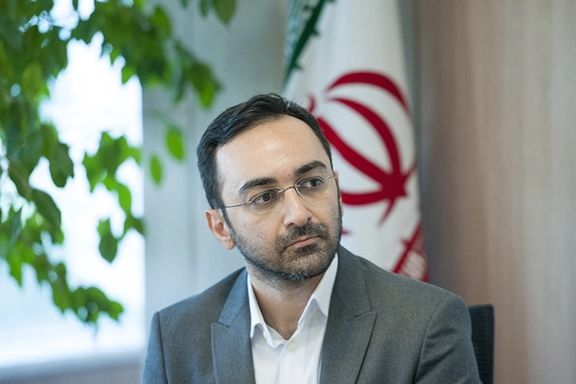
A member of the Tehran Chamber of Commerce says that the scope of US sanctions has been extended to friendly countries, including China, the UAE, and Iraq.
Mehrad Ebad told ILNA Tuesday that these countries have limited their commercial dealings with Iran.
Previously, some Iranian officials had confirmed that an important part of the country's exports rely on hidden middlemen and barters, including the exchange of oil with goods, which increases the cost of imports and reduces the profit of exports.
Ebad also stated that currently exports from Iran to Europe have reached their lowest level and the largest volume of Iranian exports to Europe, especially Eastern Europe, is carried out through Turkey.
The European Union has not yet published the trade volume for 2022 with Iran, but in 2021, it had about 900 million euros of imports from Iran, which was less than a tenth of the amount before the US imposed sanctions in 2018. Also, the European Union's exports to Iran have decreased by a third and declining to 3.9 billion euros.
Ebad went on to say that large European companies abide by the US sanctions and do not easily communicate with Iran, "but small and medium-sized companies from Germany and Italy continue to cooperate with Iran,”
If Europe's restrictions increase, “we will face a serious challenge in meeting our needs, especially in the field of technology in the oil and gas sector,” he underlined, referring to fresh European sanction being imposed on Iran for its human rights violations and supply of drones to Russia.
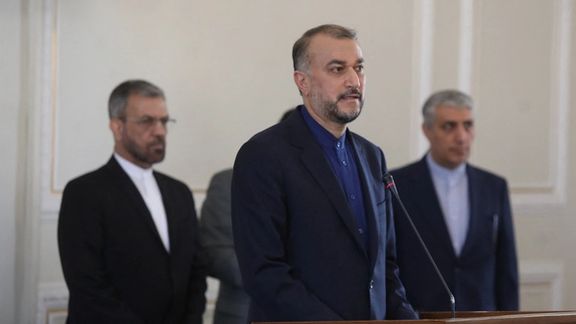
Iran’s Foreign Minister Hossein Amir-Abdollahian has said that the United States is in no position to even speak about human rights.
In a tweet on Tuesday, Amir-Abdollahian said as a result of Washington’s “interventionism” two million people have been “slaughtered” in Iraq, Afghanistan, Yemen and Syria, and the United States is also “enflaming the fire of the Ukrainian war”.
“Stop hypocrisy. The great nation of Iran knows well the malevolence behind nice-sounding words,” he added.
His comments come after US State Department Spokesman Ned Price said Monday that the US is united with its allies and partners in the need to confront Iran’s leadership for its human rights abuses and destabilizing activities.
Islamic Republic’s foreign minister claimed that the White House still insists to hold direct negotiations with Iran. “If there is a serious will on the other side, we believe an agreement would be attainable,” he said at a meeting at the foreign ministry.
Referring to anti-government protests, Amir-Abdollahian said Monday that the Americans realized earlier than the three European countries that nothing special has happened and will not happen in Iran.
The United States has openly stated that its “focus” now is on “the remarkable bravery and courage that the Iranian people are exhibiting through their peaceful demonstrations”, and the EU has come up with new sanctions on Tehran.
The unrest in Iran after the death of Mahsa Amini have garnered strong sympathy around the globe. At the same time Iran’s unwillingness to compromise on the nuclear issue persuaded the US to adopt a tougher position toward Tehran.